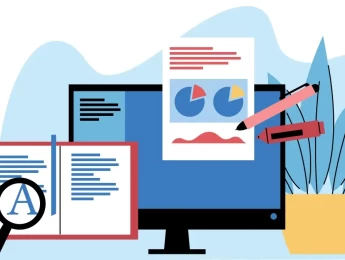Hospitals and other healthcare facilities contain many moving parts. At any given time, various healthcare professionals administer primary, secondary, and tertiary care to patients facing various healthcare challenges. Alongside caregivers, hospitals need administrators to oversee the daily operations that enable optimal care professionals who manage medical supplies, oversee staff, and maintain policies and regulations to conduct their role in a cost-effective manner. This is where the role of a Healthcare Operations Manager comes into play.
A Healthcare Operations Manager directs a hospital or healthcare facility’s staffing, resources, finances, and procedures. They work in any healthcare facility, including outpatient treatment centres, hospitals, and nursing homes.
Without an Operations Manager, any healthcare facility would likely cease to function effectively and cost-effectively. For the business and staff members to function correctly, a healthcare facility requires carefully formulated strategic and operational objectives. Operations Managers can also help hospitals and care facilities become legally compliant with their procedures.
A Healthcare Operations Manager is essential for ensuring that a hospital thrives and doesn’t face unnecessary expenses, disruption to service, legal risks, and poor quality of service. Due to their extensive leadership skills and outstanding organisational skills, they can demonstrate how smoothly any facility should operate. If there are any disturbances, then they can demonstrate how best to handle them, too.
Upon completion of this course, participants will be able to:
- Ensure all operations are carried out appropriately and cost-effectively.
- Improve operational management systems, processes and best practices.
- Manage budgets and forecasts.
- Perform quality controls and monitor production KPIs.
- Develop strategies to improve the operational efficiency and effectiveness of healthcare facilities.
- Understand the cost concepts and service costs.
- Understand legal compliance and how regular medical facility audits can help work towards these.
This course is specifically for those in a senior or executive healthcare role, especially for Operations Managers who aim to develop processes and procedures to improve the future of their facility. It would be most beneficial for:
- Operations Managers
- Chief Financial Officers
- Chief Executive Officers
- Chief Quality Officers
- Administrative Directors
- Risk Management Staff
- Patient Safety Officers
- Senior healthcare staff
- Executive healthcare staff
This course combines lectures and group discussions, providing the latest methods and strategies to maximise participant training.
Participants can present specific problems using group problem-solving exercises and provide various solutions. During this course, they will learn how to effectively manage costs and improve productivity through trainer-led presentations and real-world case study evidence. They will also develop their communication style through role-playing activities.
Day 5 of each course is reserved for a Q&A session, which may occur off-site. For 10-day courses, this also applies to day 10
Section 1: Financial Management
- Learn the difference between direct and indirect costs.
- Understand how management influences costs.
- Learn fixed costs and variable costs.
- What is ABC, and when is it used?
- Understanding different cost management processes.
Section 2: Execute an Effective Cost Management Process
- Learn cost analysis.
- Understanding CVP.
- Understand make vs buy regarding outsourcing.
- Learn how and when to establish performance improvement plans.
Section 3: Economic Costs
- Learn how to establish relevant costs for decision-making.
- Understanding short-run vs long-run.
- Learn several ways to improve healthcare cost management.
- Understanding different types of techniques when reporting results.
- Understand how to adopt benchmarking.
Section 4: Expenses and Management Responsibilities
- Learn how to meet all regulatory standards regarding patient care, safety standards, infection control, etc., are met.
- Understand how to review operational budgets and recommend changes to higher management.
- Learn how to lead the healthcare operations team, including nurses, administrators, physicians, and other staff members.
- Understand how to comply with health and safety and demonstrate this to other employees.
- Learn how to evaluate staff performance and identify areas of improvement or concern.
Section 5: Incentivize Healthy Behaviours
- Understand different types of incentives.
- Learn how to provide incentives.
- Understand cost shifting vs cost management.
- Learn what an employee assistance plan is.
- Understand what Health Portal is and how best to use it.
- Learn about health risk assessment.
Upon successful completion of this training course, delegates will be awarded a Holistique Training Certificate of Completion. For those who attend and complete the online training course, a Holistique Training e-Certificate will be provided.
Holistique Training Certificates are accredited by the British Assessment Council (BAC) and The CPD Certification Service (CPD), and are certified under ISO 9001, ISO 21001, and ISO 29993 standards.
CPD credits for this course are granted by our Certificates and will be reflected on the Holistique Training Certificate of Completion. In accordance with the standards of The CPD Certification Service, one CPD credit is awarded per hour of course attendance. A maximum of 50 CPD credits can be claimed for any single course we currently offer.
- Course Code IND05-104
- Course Format Classroom, Online,
- Duration 5 days













